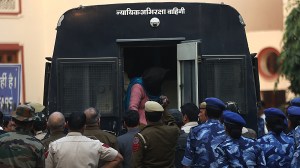Why Pak lawyers are at the centre of protests against General Musharraf
Behind the public rage of Pakistan’s lawyers, who protested for a third day on Wednesday, lies a long-smoldering...

Behind the public rage of Pakistan’s lawyers, who protested for a third day on Wednesday, lies a long-smoldering resentment toward the country’s military President, who at first held out a promise for educated, politically moderate Pakistanis, but steadily squandered their support.
That disappointment turned to fury after President Pervez Musharraf abolished the Supreme Court and scrapped the Constitution, touching a raw nerve among Pakistan’s lawyers, some with degrees from the best universities abroad and with experience in how other societies had preserved legal rights.
On Tuesday in a telephone address to lawyers here in the capital, the ousted Chief Justice Iftikhar Muhammad Chaudhry urged them to continue to defy the state of Emergency. Hundreds of lawyers took to the streets again in the eastern city of Lahore and in Multan, about 200 miles to the southwest of Lahore. The police arrested scores of protesters, and more than 100 lawyers were injured in street battles.
In interviews on Tuesday, a day after hundreds were tear-gassed, beaten and rounded up by the police, the lawyers said they had taken to the streets because they felt that Pakistan’s first taste of judicial independence was being snatched away.
“How do you function as a lawyer when the law is what the General says it is?” said a prominent lawyer in Islamabad, Babar Sattar, who has a Harvard law degree.
Athar Minallah, who holds a master’s degree in law from Cambridge and was in Musharraf’s Cabinet during the first two years of his rule, said lawyers were outraged that the General was moving backward. “When the Supreme Court started acting like an independent institution for the first time in 60 years, they came down very hard,” he said. “In the past, the Supreme Court had always connived with the establishment and the military.”
That once-cozy relationship frayed as the court, led by Chaudhry, gradually began challenging Musharraf on cases ranging from human rights to the validity of his election. Musharraf suspended the Chaudhry in March, accusing him of corruption, but lawyers around the country protested.
Their demonstrations became a rallying point for a broader weariness among Pakistanis after seven-and-a-half years of military rule. The General eventually had to back down, and Chaudhry was reinstated in July. But as the court continued to thwart Musharraf, he cracked down and on Saturday declared a state of Emergency, accusing the court of meddling in the affairs of state and “demoralising” public servants.
In fact, lawyers said in interviews, the court was doing its job, and it was Musharraf who had retreated into the old ways of Pakistan.
Minallah said their expectations of change had been dashed. “All these people are professionals, who have never been out on the streets before,” he said of the roughly 50 people arrested at the Human Rights Commission of Pakistan, in Lahore, when the police raided the building on Sunday.
In fact, when Musharraf first seized power in a military coup in 1999, unseating Prime Minister Nawaz Sharif, he was initially welcomed by Pakistanis fed up with years of corrupt and dysfunctional civilian rule. Minallah was among those early supporters.
“Initially Musharraf gave the impression, through speaking of reforms, that he meant business,” Minallah said. “He was going to do something that had never happened before 1999: people from the ruling class would be held accountable for whatever they did.” But he recounted his gradual disenchantment on a range of issues — not only strictly legal issues — after joining the Musharraf Government.
Things began to turn sour quickly, particularly after Musharraf organised a referendum in the spring of 2002 in an attempt to legitimise his rule, Minallah said. By then, it was clear, he said, that the General was keeping the opposition political parties headed by two former prime ministers — Benazir Bhutto and Sharif — out of the political arena.
“That vacuum was filled by the religious forces,” Minallah said. “Now Musharraf is targeting the liberal forces of this country. Yet they are the ones who want to fight extremism.”



- 01
- 02
- 03
- 04
- 05




























